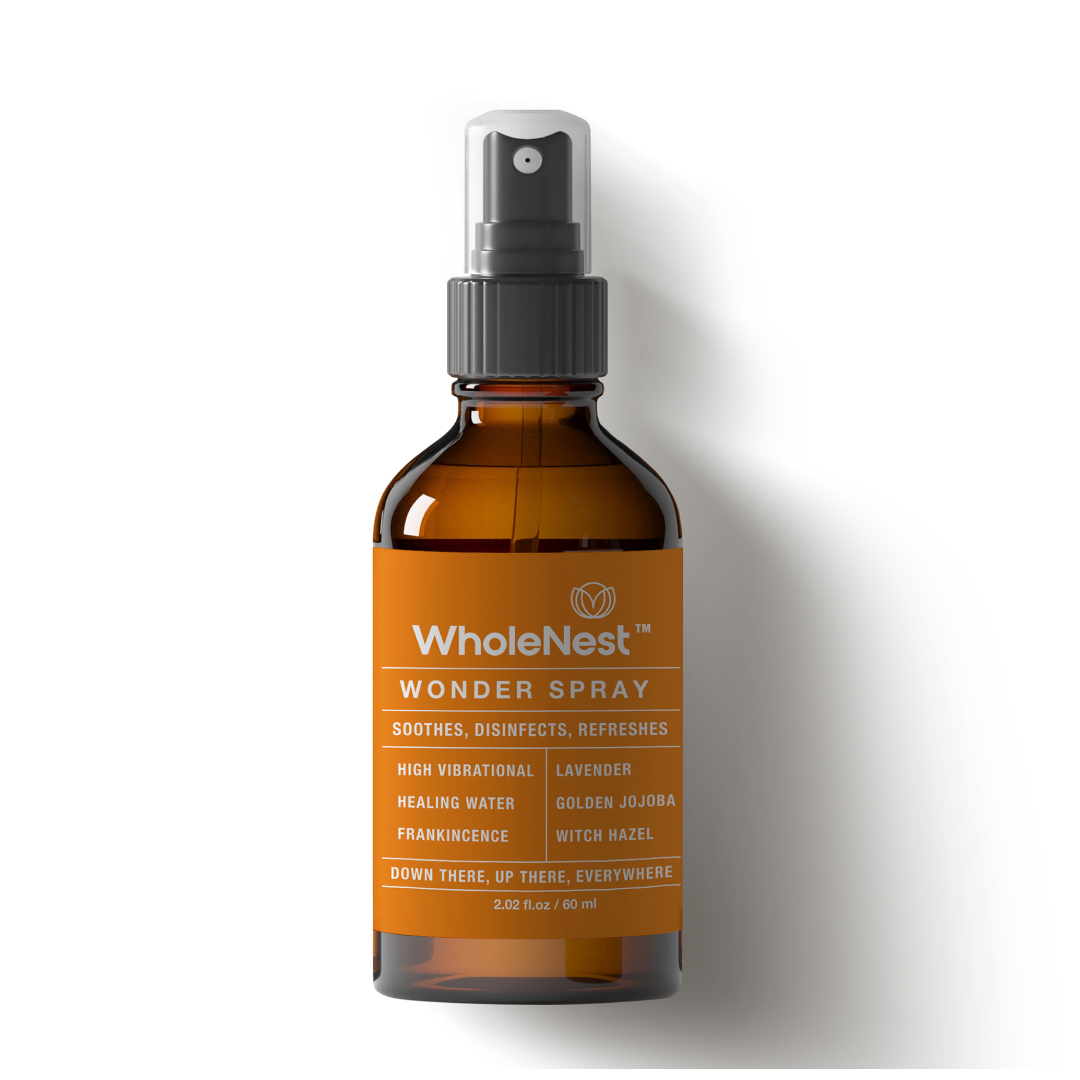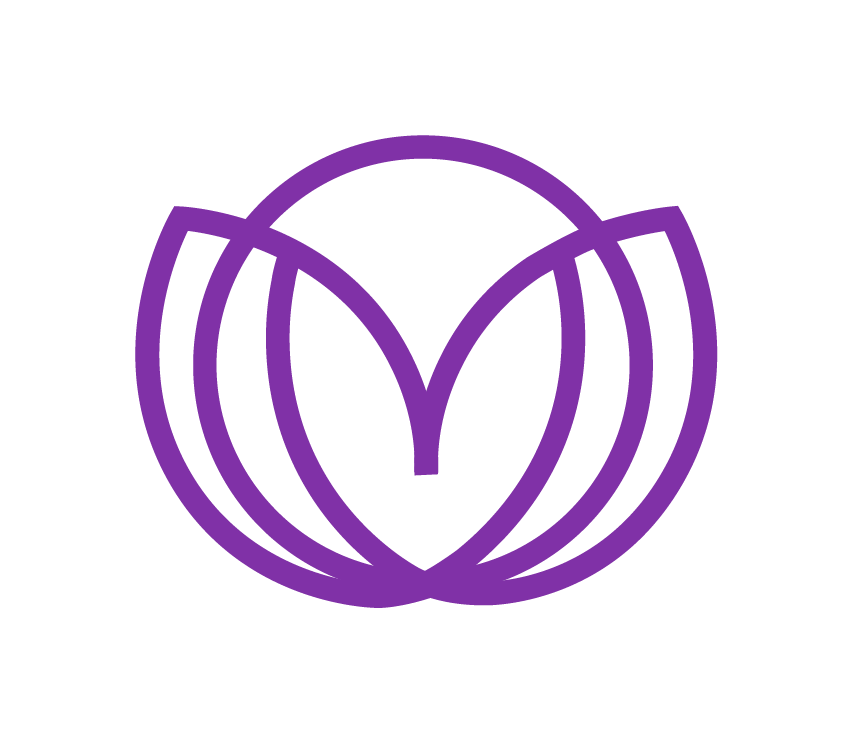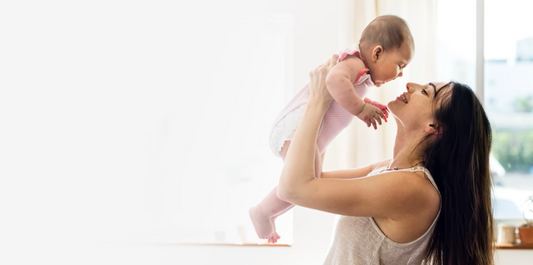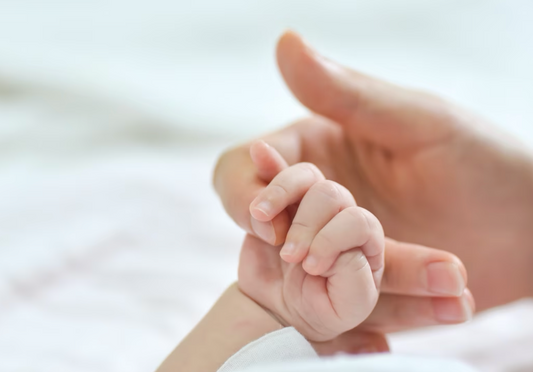Let's chat about something that might not be the most glamorous topic, but hey, it's totally normal and something many of us go through: hemorrhoids during pregnancy and after giving birth.
TABLE OF CONTENT |
What are hemorrhoids?
Imagine this: you've got these veins around your bum area, and sometimes, for various reasons, they decide to get all swollen and inflamed. That's basically what hemorrhoids are – swollen veins in your rectum or anus.
Now, there are two main types: internal and external. The Internal one hangs out inside your rectum where you can't see them. External ones, on the other hand, pop up outside your anus, making their presence known.
You might notice some bleeding, itching, or pain around your bum area – not exactly the most pleasant experience, right? But don't worry, we've got some tips and tricks to help you out and make things a little more comfortable.
What causes Hemorrhoids during pregnancy or postpartum?
During pregnancy, these little things might decide to show up and say, "Hey, we're here too!" thanks to all the extra pressure your growing baby puts on your pelvic area. And then, after giving birth, especially if you've had to do some serious pushing, they might stick around for a little longer. However, these are not the only reasons, they can come from:
- Pressure from Baby Bump: Your growing uterus during pregnancy puts increased pressure on the veins in your pelvic area, making them more prone to swelling and inflammation.
- Straining During Bowel Movements: Constipation is a common issue during pregnancy, and straining when you're trying to go number two can aggravate those delicate veins, leading to hemorrhoids.
- Pushing During Childbirth: When it's time to bring your baby into the world, all that pushing can put even more strain on your pelvic area, causing or exacerbating hemorrhoids.
-Hormonal Changes: Pregnancy hormones can wreak havoc on your body in many ways, including making your blood vessels more susceptible to swelling, which can contribute to hemorrhoid formation.
- Poor Diet and Hydration: Not getting enough fiber and fluids in your diet can lead to constipation, which in turn increases the likelihood of developing hemorrhoids during pregnancy and postpartum.
- Sedentary Lifestyle: Sitting or standing for long periods without much movement can also contribute to hemorrhoids. So, if you're spending a lot of time on the couch binge-watching your favorite shows or sitting at a desk all day, it might be time to get up and move around a bit more.
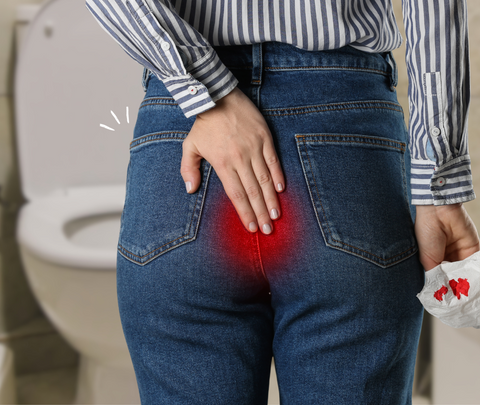
Symptoms of Hemorrhoids
Here are some common symptoms to watch out for:
- Bleeding: If you notice blood when you wipe after going to the bathroom or see blood in the toilet bowl, it could be a sign of hemorrhoids. The blood is usually bright red and may be seen on toilet paper or in the toilet water.
- Itching: Hemorrhoids can be pretty darn itchy, especially if they're external ones hanging out around your anus. You might find yourself constantly wanting to scratch that area to get some relief.
- Pain or Discomfort: Hemorrhoids can cause pain or discomfort, especially when you're sitting, standing, or going to the bathroom. You might feel a throbbing or aching sensation around your anus.
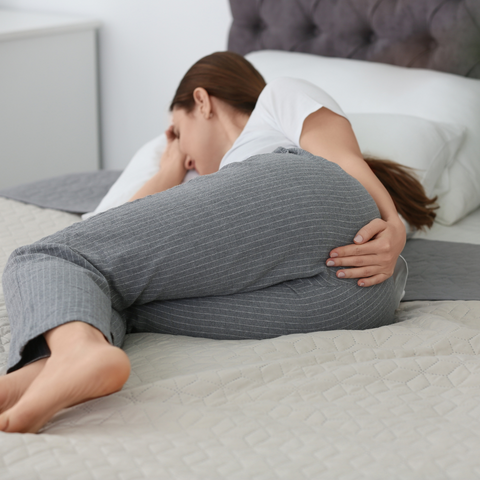
- Swelling: Hemorrhoids can make your backside feel swollen and tender to the touch. You might notice lumps or bumps around your anus, particularly if you have external hemorrhoids.
- Protrusion: In severe cases, hemorrhoids can actually protrude from your anus and become prolapsed. This means they stick out and may need to be pushed back in manually.
- Mucous Discharge: Some people with hemorrhoids may notice a mucous discharge from their anus, especially after a bowel movement.
Treatment Options for Hemorrhoids
Alright, let's talk about how we can kick those pesky hemorrhoids to the curb and get you feeling more comfortable ASAP. Here are some treatment options to consider:
- Eat More Fiber: One of the best things you can do is load up on fiber-rich foods like fruits, veggies, whole grains, and beans. Fiber helps keep your stool soft and makes it easier to go to the bathroom without straining.
- Stay Hydrated: Drink plenty of water throughout the day to keep things moving smoothly down there. Being well-hydrated can help prevent constipation, which is a big no-no when you're dealing with hemorrhoids.
- Warm Baths: Taking a warm bath can provide some much-needed relief for your bum. Add some Epsom salts or baking soda to the water for extra soothing power.
- Ice Packs or Cold Compresses: Applying an ice pack or cold compress to the affected area can help reduce swelling and numb the pain. Just make sure to wrap it in a cloth or towel first to protect your skin.
- Sitz Baths: A sitz bath is like a mini bathtub for your bum. You fill it with warm water and then sit in it for about 10-15 minutes. It can help clean the area and provide relief from discomfort.
- Stay Active: Regular exercise can help keep things moving smoothly in your digestive tract and prevent constipation. Plus, it's a great way to relieve stress and boost your mood!
An all-natural product that's definitely worth giving a try: our Less Than A Day Hemorrhoid Relief. Taking inspiration from the philosophy of natural healing, it provides instant relief, reduces flare-ups, and speeds up recovery during postpartum.
Less Than A Day features an exceptional combination of essential oils that make those occasional ouchies go away. The anti-inflammatory properties provide soothing relief for hemorrhoids, itching, burning, irritations, and even anal fissures.
It is safe and extremely effective during pregnancy, postnatal, and for anyone out there that is in need.
- Medical Treatments: If your hemorrhoids are really bothering you and home remedies aren't cutting it, don't hesitate to reach out to your healthcare provider. They might recommend prescription medications or procedures like rubber band ligation or hemorrhoidectomy to help get rid of them for good.
Dealing with hemorrhoids during pregnancy or postpartum can feel like a real pain in the, well, you know where. But the good news is, you're not alone, and there are plenty of things you can do to find relief and get back to feeling like yourself again.
Remember, everyone's body is different, so what works for one person might not work for another. It's essential to listen to your body and reach out to your healthcare provider if you're experiencing any discomfort or symptoms that are concerning you. They're there to help and can offer guidance on the best course of action for managing your hemorrhoids.
In the meantime, try out some of the tips and tricks we've talked about, like eating more fiber, staying hydrated, and using the Less Than a Day.
Above all, be kind to yourself. Pregnancy and postpartum are already challenging enough without adding hemorrhoids into the mix. So take it easy, give yourself grace, and know that you're doing an amazing job, mama.
You've got this! Here's to feeling better and getting back to enjoying all the beautiful moments that come with bringing a new life into the world.

